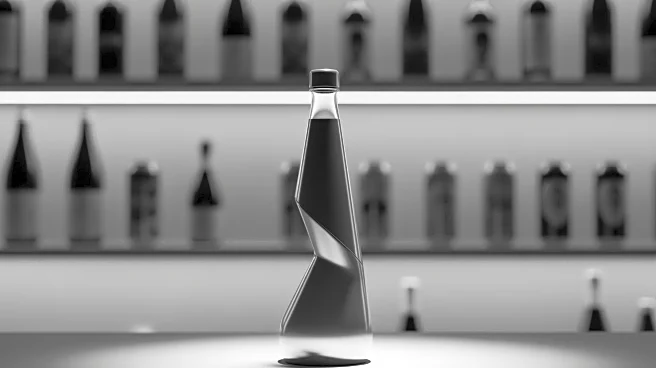What's Happening?
The process of getting a new beverage brand into retail is fraught with challenges, primarily due to the competitive nature of shelf space dominated by major players with substantial budgets. At the Beverage
Forum in London, industry experts discussed the critical factors for success in retail entry. Key considerations include finding the right retailer that aligns with a start-up's capabilities, meeting minimum order requirements, and ensuring the product targets the right audience. Sprouts Farmers Market in the U.S. exemplifies a retailer focused on better-for-you segments, offering opportunities for trendspotting brands. Additionally, retailers like Holland & Barrett emphasize science-backed efficacy for functional beverages, scrutinizing claims to ensure they align with scientific standards. Branding and visual appeal are also crucial, as retailers seek products with consumer appeal and compliance with marketing regulations.
Why It's Important?
The significance of these challenges lies in the impact on beverage entrepreneurs and the broader industry. For new brands, entering retail can be a pathway to mass market success, but it requires strategic alignment with retailers' needs and capabilities. The emphasis on science-backed efficacy and compliance with regulations highlights the growing scrutiny in the functional beverage sector, affecting how brands position themselves. Retailers' focus on branding and consumer appeal underscores the importance of marketing strategies that resonate with consumers. This dynamic influences the competitive landscape, where smaller brands must navigate complex requirements to gain shelf space and visibility.
What's Next?
For beverage entrepreneurs, the next steps involve building strong brand narratives and leveraging direct-to-consumer (D2C) channels to gather consumer insights and perfect products before retail launch. This approach can de-risk the process for retailers and attract new consumers. Persistence and resilience are key, as entrepreneurs must continue to engage with potential retail partners, offering value and aligning with their business goals. The evolving regulatory environment, particularly concerning products high in fat, salt, and sugar, will continue to shape marketing strategies and product development.
Beyond the Headlines
The deeper implications of these challenges include the ethical considerations of marketing health-related claims and the cultural shift towards healthier beverage options. As consumers become more health-conscious, brands must navigate the balance between innovation and scientific validation. The focus on sustainable sourcing and brand narratives reflects broader societal trends towards environmental responsibility and ethical consumption, influencing long-term industry shifts.









